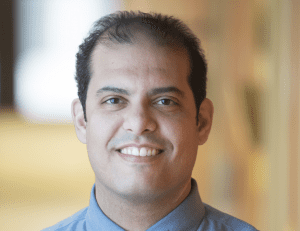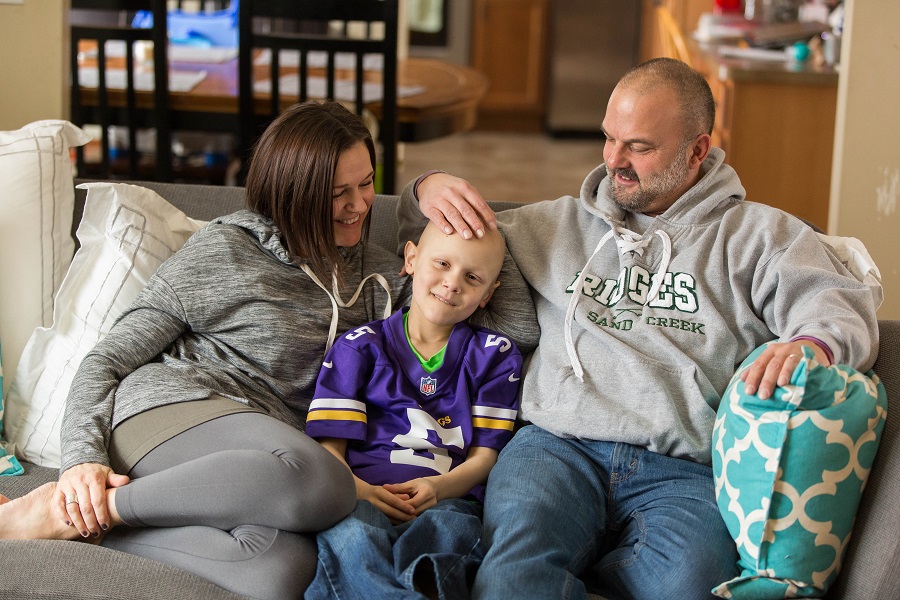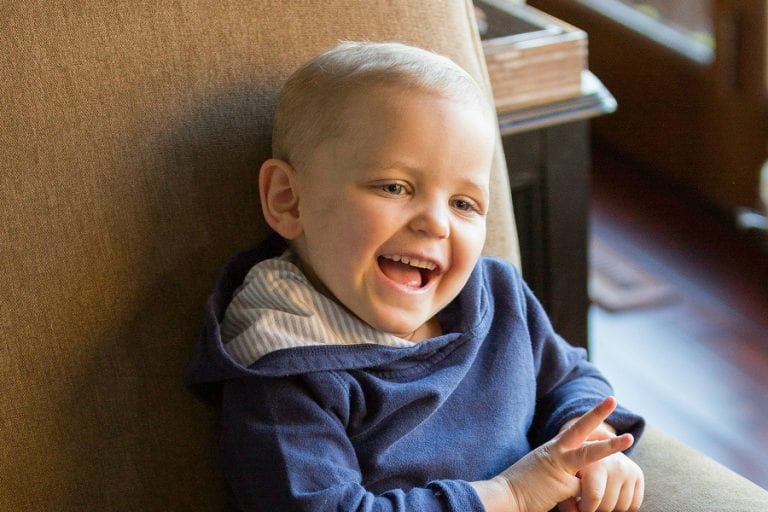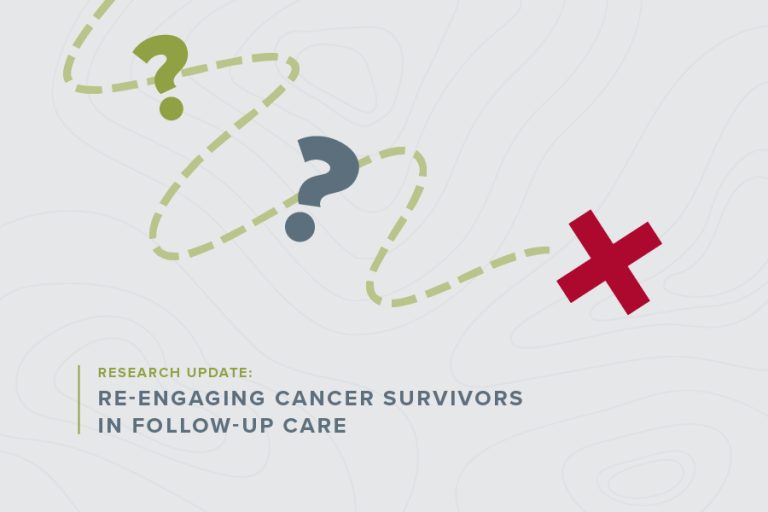As so many of us now know, people with compromised or weakened immune systems are at much higher risk for COVID-19 complications. This includes people going through cancer treatment currently and some who have received cancer treatments in the past like chemotherapy, radiation or bone marrow transplant. Their immune systems or other organ functioning may be not as well as everyone else’s, often for years.

Dr. Karim Sadak, University of Minnesota
University of Minnesota researcher Dr. Karim Thomas Sadak, MD, MPH, MSE has been developing programs to ensure continuous, high-quality healthcare for childhood cancer survivors for years – and today, he’s seeing that work become even more important.
We asked Dr. Sadak about his work with cancer survivors, how they’re being impacted by COVID-19, and what the rest of us can do to keep these vulnerable populations safe and healthy.
Can you explain to those who may not know why childhood cancer patients and survivors are at higher risk for COVID-19?
Because of the treatments for childhood cancer, including chemotherapy, radiation and bone marrow transplant (BMT), many survivors are at higher risk than the healthy population, or than healthy children of the same age, for the most severe effects of COVID-19 infections. These treatments make most kids immunocompromised during treatment, and leave many survivors with health conditions after their cancer is gone that can place them at high risk for severe complications from COVID-19 infections.
How have you been talking to families of kids in active treatment, and families whose children are survivors during this time?
We’ve been hearing from our patients frequently, early and often with questions about how this impacts their child’s care and what they can do to be prepared. This crisis really touches these families because they know their child is at higher risk, and many still need to be coming in to the clinic for appointments. We’re working on several logistical things they can do to stay safe, like finding other ways to do appointments that don’t need to be in-person and having a plan for when they do need to come in.
Your research is focused on survivors of childhood cancer – can you tell us why it’s important to not lose focus after a child is considered cancer-free?
Many cancer survivors have complicated medical histories, and any doctor who cares for that survivor needs to know about that history. But these are patients who were treated as children and may not have a good memory of everything they’ve been through. I talked to one cancer survivor recently who is now an adult – she said all her medical records are in a big white binder at her dad’s house. We need a better system than that, because only one in five childhood cancer survivors receive the survivor-focused care that they need. If we have a plan in place to not let these survivors slip through the cracks of the health care system as they grow up, we can keep them in the system and make sure future health issues are addressed right away or even preemptively. No survivor should ever slip through the cracks.
What does your research do to help ensure that survivors and their care providers have all the information they need to stay healthy?
My research is focused on implementing tools (like an app or patient portal) that help survivors, parents and providers communicate and improve the quality of their care. We’re also getting input from health system leaders, because these are the people who have the highest-level impact on how we deliver care. They can become key stakeholders in making sure these plans are the most helpful that they can be. We want to figure out what kind of platform would work best for everyone involved – survivors, parents, care providers and health system leaders – so we give them the best possible tool right from the start.
Is the pandemic that we’re all experiencing right now impacting your ability to keep research moving forward?
These are trying times with all the changes happening in our clinical practice and research. But researchers and front line clinical providers are going to keep doing what is best for our survivors, so we can keep our patients healthy and keep moving research forward to help our patients in the future. The pandemic doesn’t change our commitment and our drive to discover what is going to be the next big thing to help these survivors. This work may not be on the front page, but know that we’re still here working behind the scenes for these survivors and their future.
How does philanthropic support from sources like CCRF fuel your research?
We are so thankful for that support. Philanthropic support is raising the bar for how we take care of childhood cancer survivors. We’re working to make sure that a cure stays a cure forever, and to do that, we need to have systems in place to deliver care that is accessible, long-term, and evidence-based so we know survivors are getting the best care possible.
What can all of us do to help protect these immunocompromised patients and high-risk survivors?
I know there’s a lot of natural and understandable fear about the social distancing that has been recommended, but anything you can do to help stop the spread has the potential to make a difference. All the guidelines – washing your hands, not touching your face, staying home as much as possible – anything you can do to stop the spread makes a difference. The things you do to stay safe now will trickle down to those families and children in your neighborhoods and communities that are at highest risk for severe complications from this type of infection.
Donate to help childhood cancer families
This crisis will end – but when it does, childhood cancer will still exist. Families and researchers still need our support – and that support is more important now than ever. If you’re able, please donate to fund research and programs that help childhood cancer families today and in the future.



